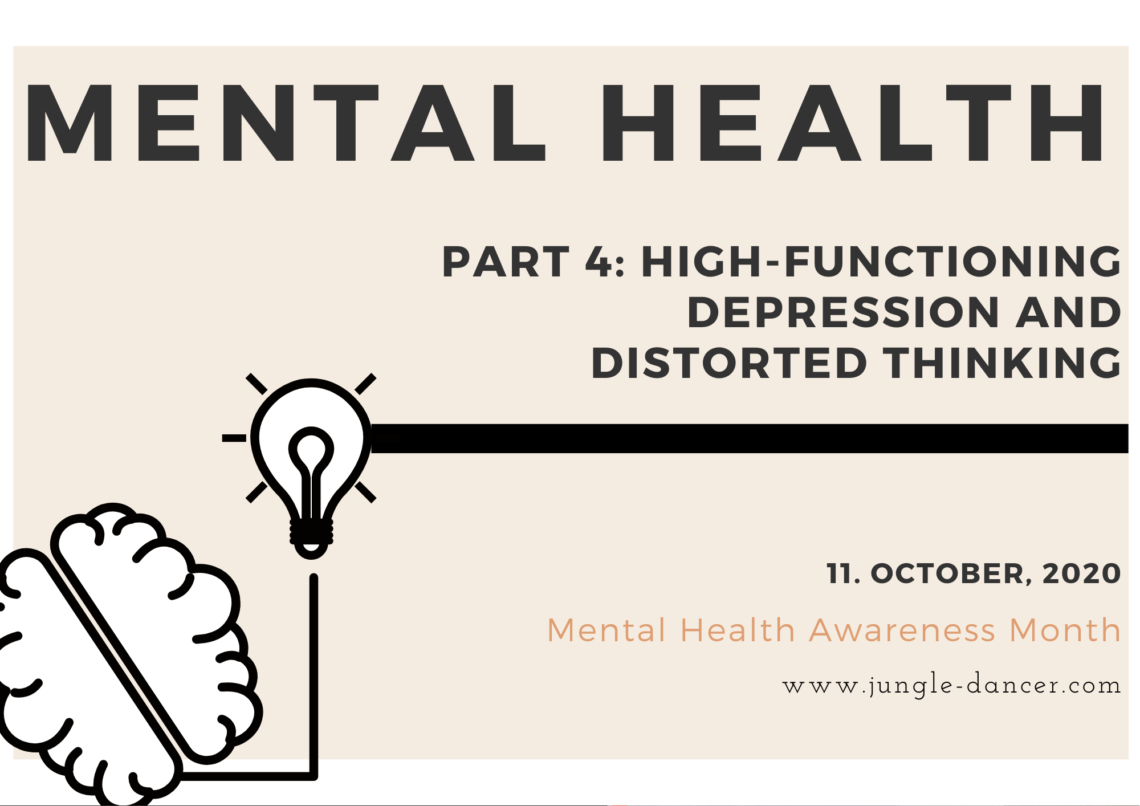
“High-functioning depression and distorted thinking. Yet, I say everything is fine.”
“Everything is fine, except for my high-functioning depression. My average day includes me being super productive at work, exercising four to five times a week, having a hobby, and on top of that, taking care of my home. Everything is fine, I repeat to myself. Yet, it is so painful to go through each day with a smile, only to come back home and fall asleep in tears. To everyone on the outside – I am fine, but deep down, I finally admit to myself: everything is not fine.”
This is a story of someone I know. The problem is, this is most likely, the story of someone you know as well. Opposed to clinical depression, high-functioning depression is extremely difficult to detect – even by the people who experience it. What makes high-functioning depression particularly dangerous is that its victims do not only struggle to get through their days and nights, but they also struggle to make other people see that they need help. To everyone around them, they seem to be healthy, productive and joyful individuals.
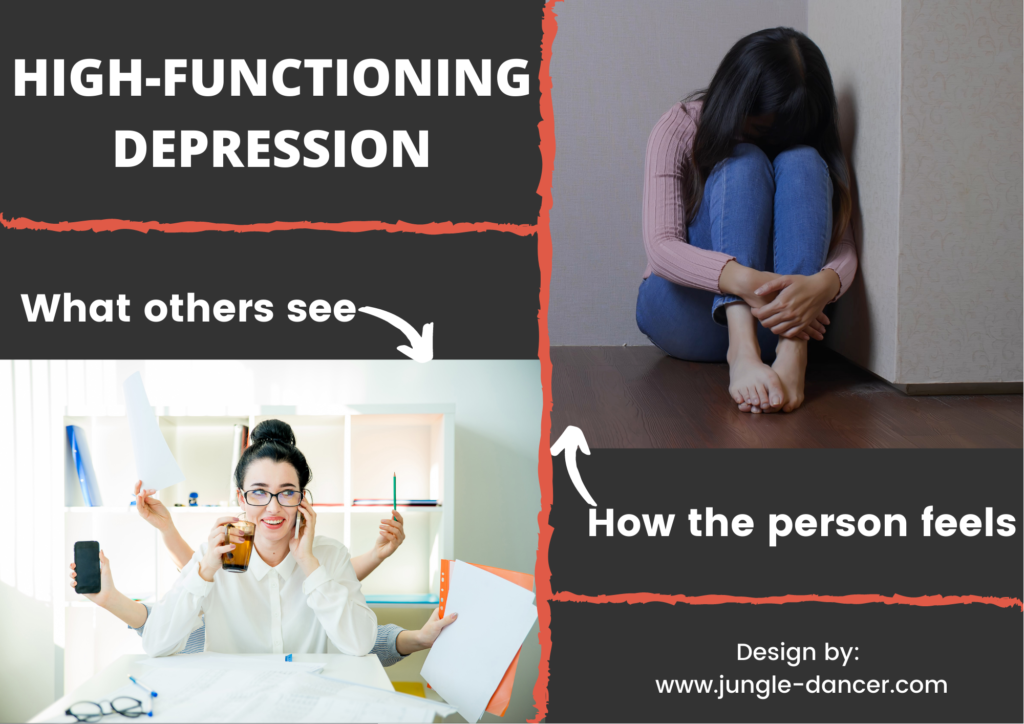
What is high-functioning depression?
We are slowly making progress in de-stigmatizing mental illnesses and breaking taboos about depression. However, there is one particular misconception that somehow never goes away from people’s mind: how depression looks like.
Here is what many of us think: unless you are constantly crying, unless you have no desire to eat or leave your bed, and unless you have suicidal thoughts – you are fine! And here are the facts: depression affects more than 264 million people. It is the leading cause of disability worldwide and is a major contributor to the overall global burden of disease; while depression-caused suicide is the second leading cause of death in 15-29-year-olds in the world.
These numbers show that depression is no longer an isolated phenomenon, but they give absolutely no information what depression feels like. Depression’s symptoms vary largely from person to person. This might be the most challenging aspect about this illness.
A person with highly-functioning depression can experience feelings of hopelessness and extreme sadness – same as the clinically depressed person. The difference is that these individuals tend to suppress these damaging feelings by focusing on their goals and wish to succeed. The drive to be accomplished and the fear of failure are so dominant in their mind that high-functioning individuals focus primarily on addressing their ambitions, rather than their feelings.
How does it feel like to live with high-functioning depression?
“My friend tells me: I get everything done, but I have to work so hard for it. I feel terribly lonely though, because everyone thinks that everything I do comes so easily for me. That I am smart, strong and well-organized. They are unaware that I have to force myself even for the tiniest of tasks, such as making my bed or doing the dishes. Yet, I fear that if I do not do these things, I will disappoint everyone who loves me.
Thus, I am battling several battles: firstly, I face my competing desires to simultaneously succeed and take care of myself; yet, I always choose performance over self-care. Then, I face my competing desires to be seen as strong on the one hand, and to ask for help on the other hand; yet, I always choose to have control, rather than to admit my struggles. I do not want to destroy the image of the perfect child, partner, friend, employee… The worst part of it all is that I know I have to change my behavior and ask for help, but I simply cannot.”
One idea that the people with (high-functioning) depression tend to have is – in my opinion – the most dangerous symptom of them all. This is the idea that they do not deserve to be happy or healthy; that they do not deserve to be liked and appreciated, and that feeling unworthy is normal.
Since depression in general is a long-term fight, with time, the individuals start to even self identify with the sadness, the struggle and the “unworthiness” so strongly, that these become part of their character. And when this happens, asking for help becomes immensely difficult. Because, even though they struggle, the people with (high-functioning) depression feel like giving up this struggle would mean giving up parts of their core identity.
Distorted thinking and high-functioning depression
Another point that makes high-functioning depression even more difficult to battle is distorted thinking. There is no consensus yet whether distorted thinking causes depression; or, if it is the other way around. However, no matter which one is true, one is certain: distorted thinking and depression often go hand in hand.
Sadly, this mindset is present in many of us, not only in depressed individuals and as such, it poses a serious threat to our psychological well-being.
The difference between the depressed and the not-depressed person is that the average person can try to force oneself to change his or her state of mind by recognizing the patterns of distorted thinking. However, this strategy will very likely not work for a depressed person who needs professional help. “A mistaken belief about depression is that it’s a state of mind that you can control by thinking positively. It is not so! Depression is a medical condition informed by a chemical, biological, and structural imbalance that impacts mood regulation” – says the psychologist Mayra Mendez, PhD.
What is distorted thinking?
Simply put, it is your brain lying to you. Distorted thinking, or cognitive distortions, are highly biased, irrational thoughts that we reinforce with time. They are also subtle, which makes it hard to recognize them or therefore, change them. All cognitive distortions have the following things in common:
- They are tendencies or patterns of thinking or believing;
- that are false or inaccurate;
- and have the potential to cause psychological damage, especially to provoke symptoms of depression.
Types of distorted thinking
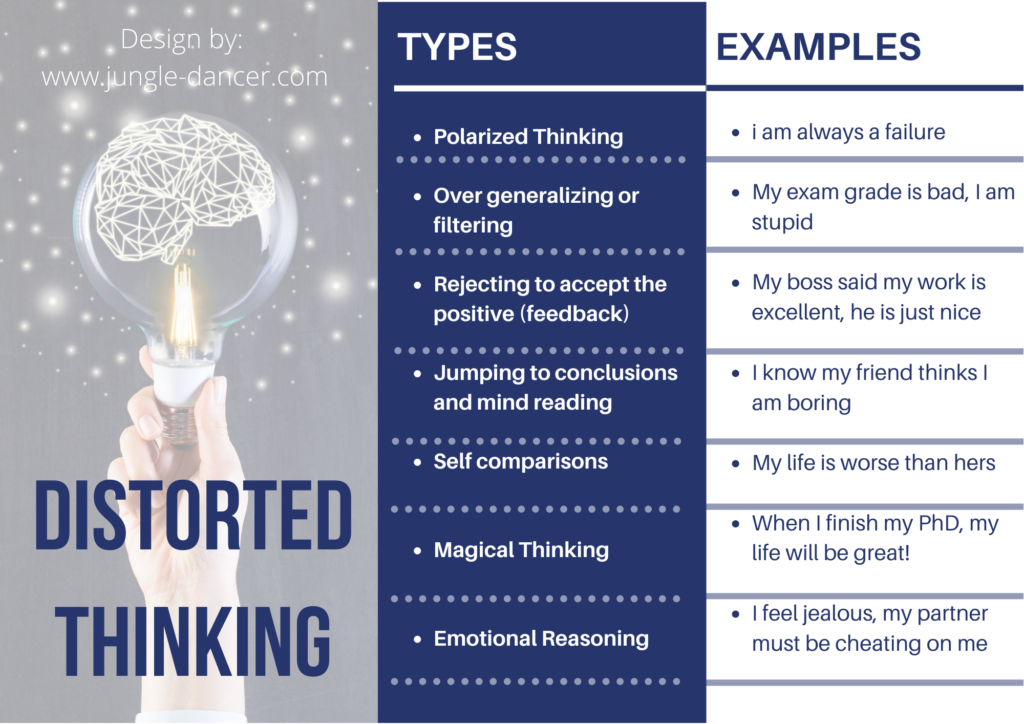
1. Polarized Thinking
This manifests with the “all or nothing” mindset and the ability to drift away from the extremes. For example, you either think you are a genius or a total failure; or you think you feel either magnificent or terrible. In reality, the truth often lies somewhere in the zone between the two extremes, but you are not able to recognize it.
2. Over generalizing or filtering
You over-generalize when you are making conclusions for your overall performance – as a person, friend, sibling, child, or employee – merely on only one or two, often negative, experiences. For example, concluding you are “stupid and failure” because of a bad exam grade and continuing to believe this years later.
Similarly, you are filtering when you are focusing on a single, negative event and neglect everything positive. This pessimistic mindset is especially dangerous in relationships. People who tend to filter will pick out only the annoying aspects of their partner’s or friend’s character and judge the whole relationship to be a failure because of this.
3. Rejecting to accept the positive (feedback)
Unlike the mental filtering where we choose to focus on the negative, this distorted thinking manifestation sees the positive and then rejects it. This is a very dangerous thinking pattern, since it never allows us to accept that we are good at anything.
For example, if our boss credits our work, we might reject the idea that we got the credit because we are simply good at what we do. Instead, we would start thinking that “s/he is trying to be nice”; or, “he was too busy to give constructive criticism”.
4. Jumping to conclusions and mind reading
We clearly state we know what someone else is thinking, even though we have never asked them about their opinion. This is especially pronounced when we start to think about what other people think of us. We then somehow magically jump to the conclusion that they think that we are “boring” or “lazy”.
This distorted thinking often goes hand-in-hand with rejecting the positive. Namely, even if an acquaintance gives us a compliment, we might reject it and start rationalizing that they are just being nice because they do not want to admit that we are not a good friend to them.
5. Self comparisons
You have compared yourself to others at one point or another and thought you were a total failure, haven’t you? Well, this is also a distorted thinking. Everyone is doing it and everyone forgets that no one is neither a total failure nor a total picture-perfect person.
6. Magical Thinking
I know I have done this. It is the thought of saying to yourself “everything will be better once I…”. I used to say this in high school, then during my bachelor and master studies as well. At some point, I got scared I will spend my whole life waiting for something to finish, so that I can finally “start to live”. Took me years to learn how to live in the present, but once I did, I got much calmer and fulfilled.
7. Emotional Reasoning
Similar to the magical thinking, we have all fallen under the charm of this distorted thinking at one point or another. Emotional reasoning is when we thinking that just because we feel something, then it must be right. Sadly, this is not always the case. Commonly-cited example is feeling jealous or sad because you feel your partner is cheating on you; but, just because you feel this it does not necessarily make it true.
What intensifies and what alleviates distorted thinking?
Intensifying distorted thinking via social media
1.1. We as the victim
Social media can have a serious negative impact on our mental health. One reason is that it causes addiction due to the release of dopamine we get every time when we see a positive feedback on our profiles. Another especially pronounced reason is that it intensifies our distorted thoughts. Self-comparison, magical and polarized thinking are probably the three most pronounced examples.
We cannot stop comparing ourselves to the people on Instagram for example, who somehow are always beautiful, successful, and happy. Even though there is a lot of talk about the use of filters and photoshop, we still cannot feel good about our “ordinary” and “boring” lives. We then shift to the magical distorted thinking, believing that “once we do this or that” we can finally also reach out for that “perfect life”. The whole thinking flow ends us with completely polarizing the situation, thinking that we either have to have that kind of life, or that we are not living at all.
1.2. The public figure as the victim
Let us now flip the coin. Is really the life of these public figures that perfect? No. Why? Bullying. A lot of it! And once we experience cyber bullying, we soon become prone to cognitive distortions, as well as physical and emotional pain. Cyber bullying, according to many psychologists, is even worse than in-person bullying because the bullied person feels like there is no escape from it. When we experience in-person bullying, we can go home, or reach to our friends and find some kind of a consolation. However, when we see the hurtful messages and comments on our phones and we take our phones everywhere with us, then we feel like there is no safe place on Earth.
On this topic, I talked to an acquaintance of mine, who also happens to be an Instagram influencer. She says:
“I never understood online bullying. People are allowed to live a different life than the conventional standard and to have a hobby different than their career. I think that it is okay if they’re interested to get praised by the press for being bold. Instead, they get bullied.
I’m always trying to advocate mental health for people in the public profession, but the response is usually “they picked it so they’d have to handle it”. This hateful narrative has to change. We really need to understand that the cancel culture is incredibly toxic and is costing us a lot of lives. Lynching a person is terrible, especially because we all make mistakes. We’re all flawed, so one would think that compassion would come easily to all of us. Yet, this is not always the case. We need more compassion, not bullying!”
Alleviating distorted thinking via versatile compassion
I love the message from my acquaintance. Be compassionate.
If you are the victim of distorted thinking or bullying-induced distorted thinking, first and foremost be compassionate with yourself. Try to realistically re-evaluate your experiences before comparing yourself to others, jumping to conclusions, or wishing your life was different. When you struggle to do it yourself, ask for some help from trusted friends. If you need some questions to start up with, check my post on self knowledge.
If you ever happened to be the bully, be compassionate. Try to imagine how you would feel if you were the public figure. If you say “great” (because you would then have fame and money), this is also a distorted-thinking pattern. Address your feelings at their core; namely, why is the fame of these people making you mad? What are you lacking in your life? Remember that trying to make yourself feel better by making someone else feel bad is the same as trying to have peace in the world by going to war.
Final words
High-functioning depression and distorted thinking often go hand in hand, although anyone can be a victim to the latter one. In case you want to read more about cognitive distortions, make sure you check out the work of Aaron Beck and David Burns.
If you are not suffering from (high-functioning) depression, but you have caught yourself thinking distortedly, try to reevaluate your thoughts a bit more realistically. If you struggle to do this, reach out to friends and family for help.
However, if you suffer from (high-functioning) depression, please seek out professional help. Keep in mind that high-functioning depression is particularly hard to be detected since many people cannot accept the idea that someone can be at the same time productive and depressed. This idea though, is a highly damaging one and can lead to you living in the darkness for many years. But remember, as Dumbledore told Harry, “happiness can be found even in the darkest of times, if one only remembers to turn on the light”. So reach out for the light and ask for help.
Mental Health Awareness Month
This post is the fourth one in my series on mental health. In case you have missed the first three, here is your chance to revisit them.
- Mental health and the importance of self-knowledge
- How do our relationships influence our mental health?
- How are our hormones and emotions correlated?
October is a mental health awareness month, so I am inviting you all to think about this topic and your overall psychological and emotional well-being. This should no longer be a taboo topic.
If you like what you read, or think that the ideas I share could be of relevance to someone you know; to someone who struggles – please reach out to them. Be kind, be supportive, be caring. Thank you.
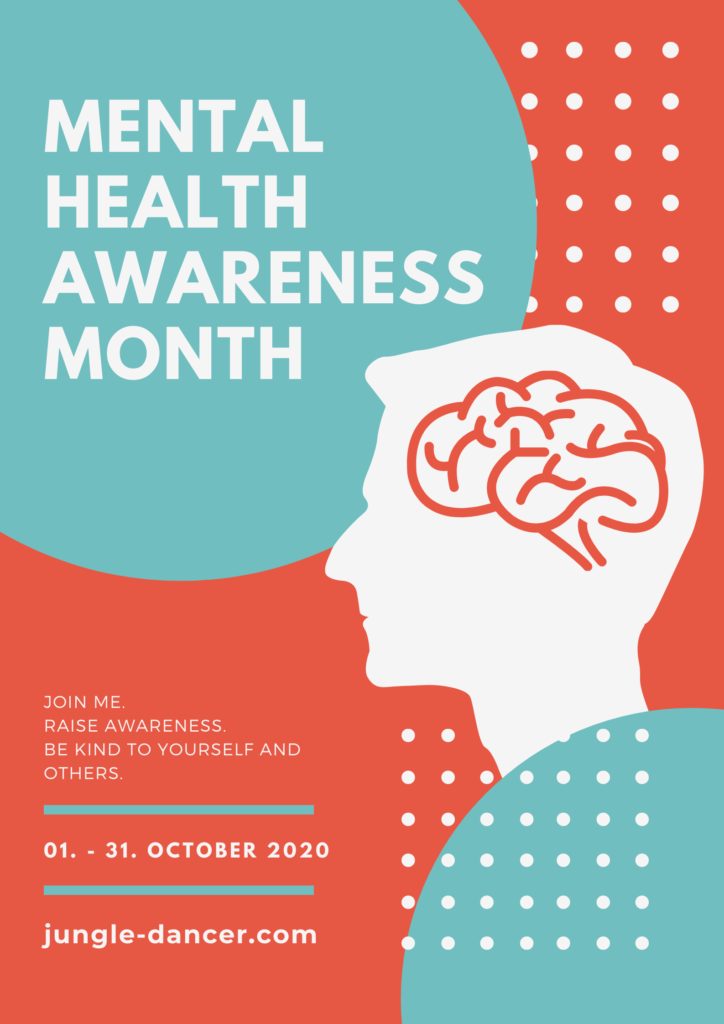





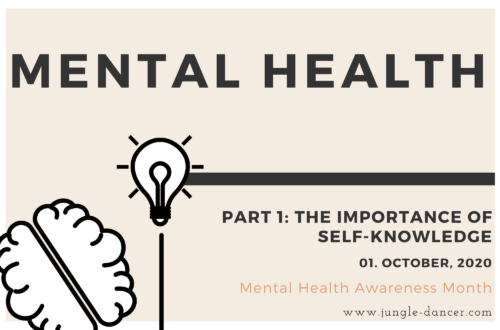
3 Comments
Pingback:
Pingback:
Pingback: